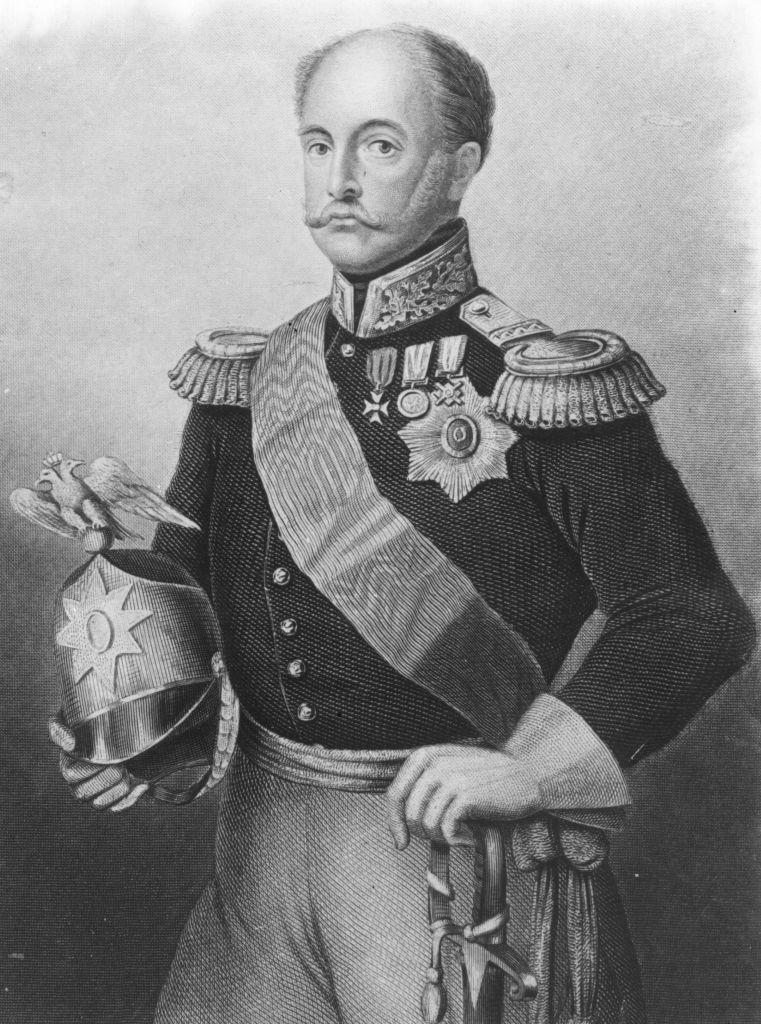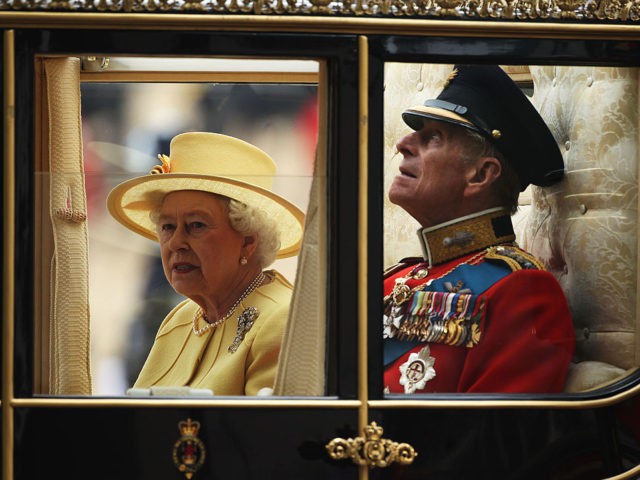While the Duke of Edinburgh was best known as part of the British monarchy, he was born a Greek prince, part of a dense web of European royalty that existed before the great calamity of the 20th century.
The Russian Federation, the republic which replaced Communist Soviet Russia after its collapse in 1991, made clear reference to the monarchy wiped out by the communists in 1917-18 in its message of condolence to the British people on Friday. Identifying the Duke of Edinburgh as the “great-great-grandson of Russian Emperor Nicholas I”, the Russian Embassy in London noted: “[Philip] was admired and will be mourned by many Russians. May his soul rest in peace.”
While His Royal Highness became the Duke of Edinburgh when he married the then Princess Elizabeth in 1947, he was born to the then-reigning Greek royal family in 1921. When the Greek monarchy was deposed, he was smuggled out of the country, just 18 months old, in an orange crate onto a Royal Navy warship.

circa 1840: Tsar Nicholas I of Russia (1796 – 1855) in military uniform. (Photo by Hulton Archive/Getty Images)
It is through his Greek royal family that the Duke was a descendant from the formerly ruling Russian Royal family, the Romanovs. Grand Duchess Olga Konstantinovna of Russia, one of Tsar Nicholas I of Russia’s granddaughters, had married Philip’s grandfather the Greek King Georgios in 1867.
This makes Philip’s children — including future British kings Charles and William — descendants of the Romanovs, as well. Prince Charles would be the first British king to be descended from a Romanov — the Duke of Edinburgh was the Queen’s consort rather than King — and would be the first British Royal descended from Queen Victoria of Britain through two separate bloodlines.
The Duke’s relatively close blood to the Romanovs — the ruling branch of whom were deposed by the Communists in Russia in 1917 and unceremoniously murdered in 1918 — was pivotal in a 2018 investigation into human remains thought to belong to the slain royals. Prince Philip donated his blood to scientists who used it to match DNA with bones found in an unmarked grave in Yekaterinburg, proving they were the mortal remains of the Romanovs.
The Duke made an overt reference to this history at the height of the Cold War. In 1967, he said: “I’d like to go to Russia very much – although the bastards murdered half my family.”
Prince Philip did, in fact, visit Russia in 1973 — the first Royal to visit the country since the Communists executed their royal family 55 years before. As the New York Times Moscow correspondent reported then, the Duke — “informally dressed in tweed” — piloted his own aircraft for six hours for the visit.

COMMENTS
Please let us know if you're having issues with commenting.